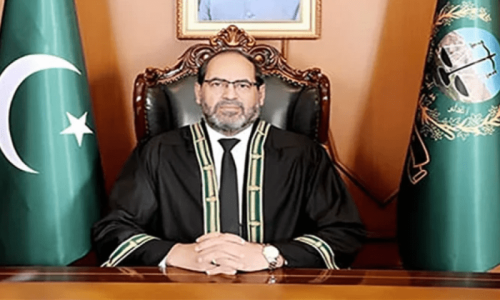LAHORE: Forty eight percent of women human rights defenders received threats at work, mainly because of its nature, but also because of other reasons. A recent research has shown that harassment, threats to life and progress of work are more prevalent as intimidation tactics.
The research, the first of its kind, has studied 2,000 women human rights defenders and assessed challenges and risks that they face and their capacity to deal with them. Those working in Punjab are the least likely to be threatened while those working in Khyber Pakhtunkhwa and Balochistan were the most likely. Threats include harassment (34pc), threats to life (23pc), to progress of work (29pc), to home or family members (12pc) and others (2pc).
More than 60pc of the respondents have been issued threats multiple times and multiple threats are a clear indication of the persistence of the perpetrators.
The study, titled “Risk and Capacity Assessment of Women Human Rights Defenders (WHRDs)” was launched by the Democratic Commission for Human Development (DCHD) on Tuesday.
According to the study, one in four respondents in the survey stated that their workplace did not provide them with security and they often had to resort to dealing with the situations themselves. Eighty six percent of such cases are usually reported, according to information provided by respondents of the study, while 14pc of women choose to ignore the threats.
Peace activist Diep Saeeda said the report was comprehensive but missed the socioeconomic indicators.
“In rural areas, the nexus is shared by the religious leaders, feudal lords and the politicians and this report also shows that the threats come mostly from influential people, followed by religious militants, political groups, family and relatives, law enforcement agencies and fellow workers,” she said.
Tanveer Jehan, executive director of the organisation that prepared the report, highlighted the women human rights activists often continued work despite serious threats. Taking a step back to keep off such threats was important and not ‘failure’ as was perceived, she said and added that survival was the more important aspect.
The civil society activists and media persons participated in the event including Umme Laila, Kishwar Awan and Bushra Khaliq and others.
Published in Dawn, October 26th, 2016












































